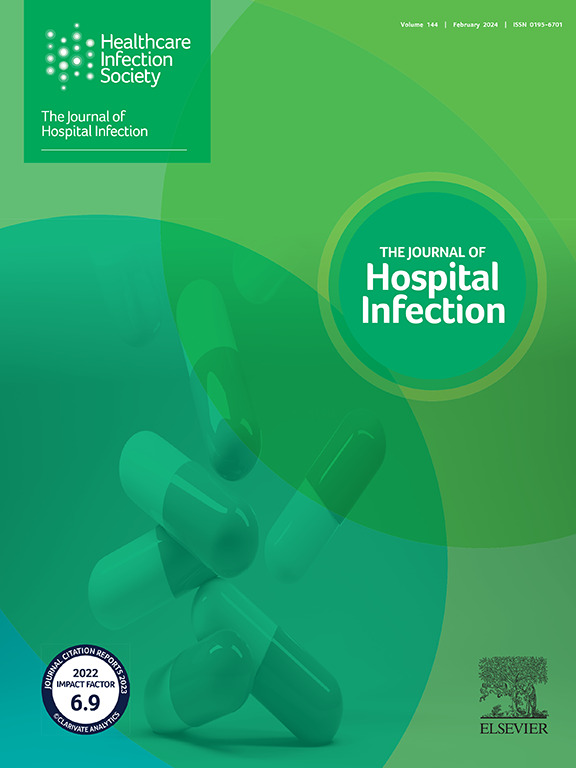增强抗菌素耐药性预防方法:世卫组织感染、预防和控制核心组成部分的环境可持续性案例。
IF 3.1
3区 医学
Q1 INFECTIOUS DISEASES
引用次数: 0
摘要
背景:人们越来越多地认识到,抗菌素耐药性(AMR)的挑战是由多种因素驱动的,包括抗菌素产品的滥用和环境污染。然而,卫生机构中有针对性的抗菌素耐药性行动主要侧重于抗菌素管理,很少或根本没有考虑限制规划影响的环境驱动因素。我们试图描述卫生机构如何在世界卫生组织(世卫组织)感染、预防和控制(IPC)核心组成部分的基础上,通过协作的“同一个健康”方法,扩大针对抗菌素耐药性的行动。方法:在全球发表的六个数据库中对环境可持续性、IPC和抗菌剂管理的整合进行了快速审查,同时对与IPC和环境可持续性相关的公开的当代指导文件进行了审查。然后将目前的IPC和可持续性做法与世卫组织IPC核心组成部分确定的可持续性机会进行比较。最后,为这一战略的实施提出了一个理论化的因果路径。结果:尽管越来越多的人呼吁卫生机构采用“一个健康”的方法来应对抗菌素耐药性,但文献中关于如何实现这一目标的证据有限。然而,IPC和可持续性目标之间存在重大重叠。因此,我们提出了一个1)理论化的因果途径,以及2)系统地将环境可持续性纳入世卫组织IPC的八个核心组成部分的战略。结论:如果医院IPC和可持续性规划采用“同一个健康”方法,可以加快抗抗生素耐药性的行动。鉴于IPC的广泛使用,我们提出了一个使用世卫组织核心组件的框架。本文章由计算机程序翻译,如有差异,请以英文原文为准。
Augmenting approaches to AMR prevention: a case for environmental sustainability within the WHO core components for infection prevention and control
Background
The growing challenge of antimicrobial resistance (AMR) is increasingly understood to be driven by multiple factors including the misuse of antimicrobial products and environmental pollution. However, targeted AMR action in health facilities focuses primarily on antimicrobial stewardship, with limited or no consideration for environmental drivers limiting programme impact. This article seeks to describe how health facilities can expand action against AMR through collaborative One Health approaches, building on the World Health Organization (WHO) core components for infection prevention and control (IPC).
Methods
A rapid review was conducted on the integration of environmental sustainability, IPC and antimicrobial stewardship across six databases for articles published globally, along with a review of publicly available contemporary guidance documents linked to IPC and environmental sustainability. Current IPC and sustainability practices were then compared with opportunities for sustainability identified across the WHO core components for IPC. Finally, a theorized causal pathway for the implementation of this strategy was developed.
Results
Despite increased calls for health facilities to embrace a One Health approach to AMR, there is limited evidence in the literature for how to achieve this. However, significant overlap exists between IPC and sustainability objectives. As such, the authors propose: (i) a theorized causal pathway; and (ii) a strategy to integrate environmental sustainability systematically across the eight WHO core components for IPC.
Conclusion
Action against AMR can be accelerated if hospital IPC and sustainability programmes adopt One Health approaches. A framework for this is proposed using the WHO core components for IPC given their widespread use.
求助全文
通过发布文献求助,成功后即可免费获取论文全文。
去求助
来源期刊

Journal of Hospital Infection
医学-传染病学
CiteScore
12.70
自引率
5.80%
发文量
271
审稿时长
19 days
期刊介绍:
The Journal of Hospital Infection is the editorially independent scientific publication of the Healthcare Infection Society. The aim of the Journal is to publish high quality research and information relating to infection prevention and control that is relevant to an international audience.
The Journal welcomes submissions that relate to all aspects of infection prevention and control in healthcare settings. This includes submissions that:
provide new insight into the epidemiology, surveillance, or prevention and control of healthcare-associated infections and antimicrobial resistance in healthcare settings;
provide new insight into cleaning, disinfection and decontamination;
provide new insight into the design of healthcare premises;
describe novel aspects of outbreaks of infection;
throw light on techniques for effective antimicrobial stewardship;
describe novel techniques (laboratory-based or point of care) for the detection of infection or antimicrobial resistance in the healthcare setting, particularly if these can be used to facilitate infection prevention and control;
improve understanding of the motivations of safe healthcare behaviour, or describe techniques for achieving behavioural and cultural change;
improve understanding of the use of IT systems in infection surveillance and prevention and control.
 求助内容:
求助内容: 应助结果提醒方式:
应助结果提醒方式:


